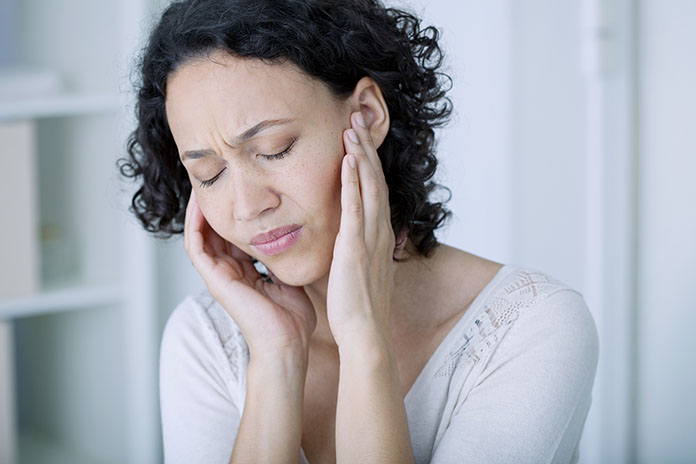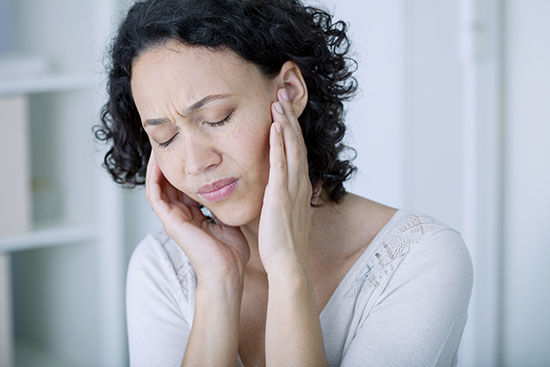What Is TMJ?
If you wake up with sore teeth, jaw or neck pain, or if your jaw pops or clicks, you may have TMJ issues. Your TMJ, or temporomandibular joint is the small joint located in front of your ears and connects your lower jaw to your skull. Whenever you talk, eat, or open your mouth for any other reason, you’re engaging this workhorse of a joint.
Unfortunately, your TMJ can become injured, inflamed, or misaligned, causing you a variety of symptoms. Some of the most common are facial pain, pain in the joint, neck and shoulder pain, jaw clenching, sensitive teeth, and frequent headaches, especially in the morning. TMJ problems can arise from a number of causes, such as a traumatic injury to your jaw, whiplash, arthritis, or your teeth being misaligned. However, the most common source of TMJ problems comes from grinding or clenching your teeth.
Tooth grinding or clenching is an unconscious reaction to stress. Clenching can occur during the day, but it most frequently happens at night, and is the reason why so many people are unaware that they’re clenching their teeth. It’s only after they have woken with a headache, sore facial muscles, or sensitive teeth that they realize that something occurred while they were asleep. While stress may be the cause of clenching, your masseter muscle provides the means. Your masseter muscle is a tiny but powerful muscle found at the lower corner of your jaw, and controls the action of your TMJ. When you become stressed, this muscle becomes tight causing you to clench or grind your teeth.
If you have TMJ issues, you may want to check in with your dentist. Your dentist can check and adjust your bite (how your teeth fit together) and make you a bite guard to protect your teeth at nighttime. They may also offer you some commonsense suggestions, such as avoiding chewing gum, dense chewy foods, and foods that require you to open wide.
Acupuncture may also be a good place to start if your TMJ is causing symptoms. Many patients have found that working with an acupuncturist to treat their TMJ is effective for a variety of reasons. Among them:
- Acupuncture relieves pain. Researchers have found that acupuncture treatments bump up the circulation of endorphins in your brain, which are neurotransmitters that relieve pain and improve your sense of well-being.
- This release of endorphins is also effective for stress, which is frequently an underlying cause of TMJ issues associated with tooth clenching and grinding.
- Acupuncture decreases inflammation. Where the needles are placed locally, acupuncture increases the circulation of inflammation-fighting white blood cells. In addition, there are several acupuncture points in and around your TMJ, jaw, and masseter muscle, which are good targets for inflammation relief.
- Your circulation is increased through acupuncture, which brings blood and nutrients to the joint and surrounding areas, which supports the healing process.
- Acupuncture also helps to loosen tight muscles, which is especially important when it comes to tooth clenching and grinding.
The bottom line is that you don’t have to live your life with the symptoms and pain associated with TMJ issues. Doing what it takes to reduce your stress, checking in with your dentist, and working with a skilled practitioner of acupuncture is a good way to get the relief you need.
![]() If you like this article, please share it with your friends using the floating Share buttons on the left margin.
If you like this article, please share it with your friends using the floating Share buttons on the left margin.
![]()



